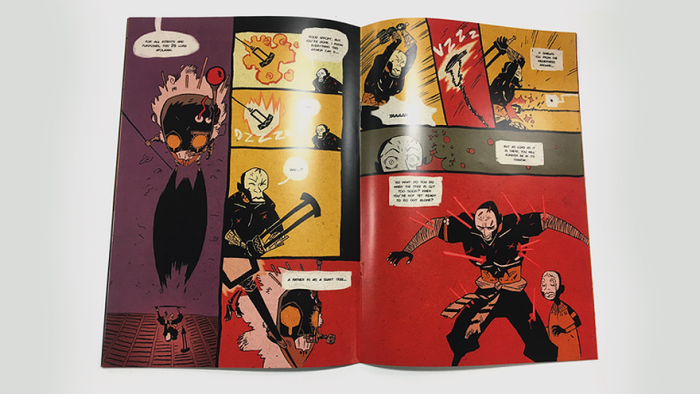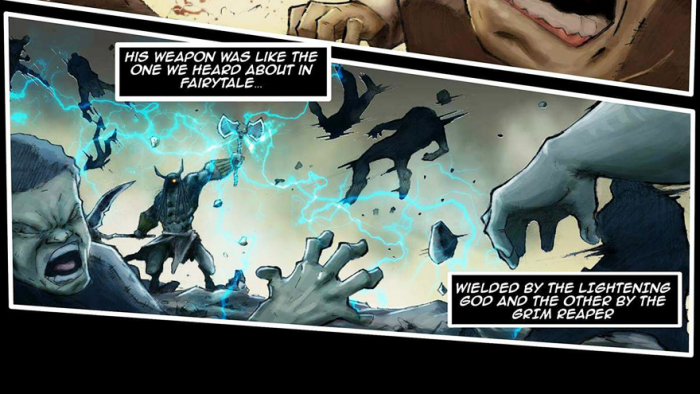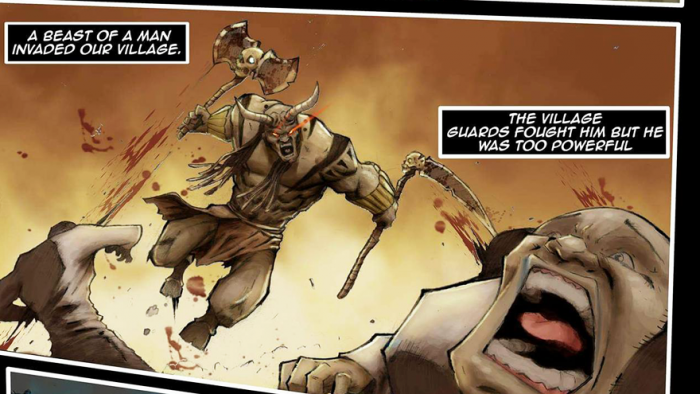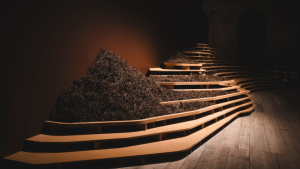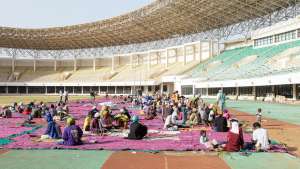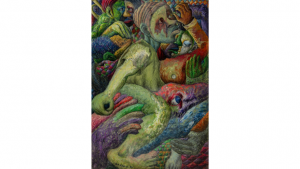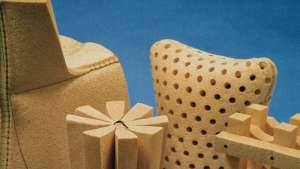A Nigerian writer is currently crowdsourcing one of the most ambitious comic book anthologies which will see 15 artists from across the continent collaborating on a 200-page book that is made up of six original stories.
Called Kugali, the project is being spearheaded by London-based creative Ziki Nelson, who left a career in finance and banking to pursue the project nearly six years ago.
"I took a gap year, during which I started putting together a writing portfolio. During this time I learned about the annual comic con in Lagos, Nigeria. I met a handful of creative people there who use comics to tell a host of Nigerian stories – stories that my own elders would teach me as a child, ones that captured my own experience growing up in Nigeria. They were illustrating stories that even portrayed what the future of our country might look like. I knew I had to emulate these early pioneers and that's exactly what I’m doing now.”
The Kugali Anthology is an effort to record and publish timeworn African folklore in a contemporary and exciting way. There isn’t a particular message that unifies the stories inside each issue nor does the project attempt to answer a specific question. Instead, as Nelson points out, it’s meant to carry on the dialogue happening in communities all across Africa right now between elders and young ones as they share customs, folk stories and legends with the next generation.
“There isn't a single question we're trying to answer, but rather a household conversation we want to continue. How do we Africans see ourselves and our respective cultures? What is it like to live in Lagos, Harare or Nairobi? What would our myths and legends look like visually? These are some of the driving factors behind Kugali.”
To ensure that the comic series attracts as wide an audience as possible, the Kugali Anthology is divided into two wings. The Regular Edition is designed to be accessible for children, while the Raki Edition is made for more mature readers while not imposing any restrictions on the contributing artists. That being said, Nelson emphasises the high standards, yet loose brief that writers and artists must adhere to in order to have their work form part of the comic collection.
“As long as the story is set in Africa, or the creator is from an African country, we are happy to publish any story – provided that the artwork is of a professional quality and the story makes us feel something. It’s also vital that each story has some sort of unique twist. From our perspective, there's no point publishing a Spiderman-esque superhero story. The DC's and the Marvel's of this world already do that so well,” says Nelson.
The anthology’s current contributors include Etubi Onucheyo, Gbenle Maverick, Juni Ba, The Coker Coop and Bill Masuku. There is a core team pulling the strings behind the venture also, including Nelson’s co-founder Tolu Foyeh and animation guru Hamid Ibrahim. Nelson and his colleagues stay in contact with a network of over a dozen artists and writers peppered across Africa who collaborate to bring individual stories to fruition. An additional team of four designers work on covers and promotional artworks for Kugali.
“We've really built a strong rapport with this current crop of contributors and we'd love to keep working with them in order to allow these various relationships to grow and flourish. It's actually quite difficult to find people that are competent, passionate and resilient all at the same time. These three qualities are a must for anyone that wants to join Kugali.”
Recruiting the right people for such an ambitious creative project has proved to be a big challenge according to the founder of the Kugali Anthology, but he remains tenaciously optimistic about the interest that this project is gaining on international shores. Nelson believes the Kugali stories might inspire a new vanguard of creative kids in the same way that Western comic books left a lasting impression on him as a kid.
“Kugali is not just for African people. Our priority is telling good stories and that means anyone should be able to pick up one of our books and connect with them. After all, despite growing up in Nigeria, I grew up reading American comics and Japanese manga. These stories have always been an endless source of joy and inspiration to me. There's no reason why Kugali can't provide that same experience for comic book readers across the world.”
To find out about the next issue of Kugali or to support their crowdfunding campaign, read more.




